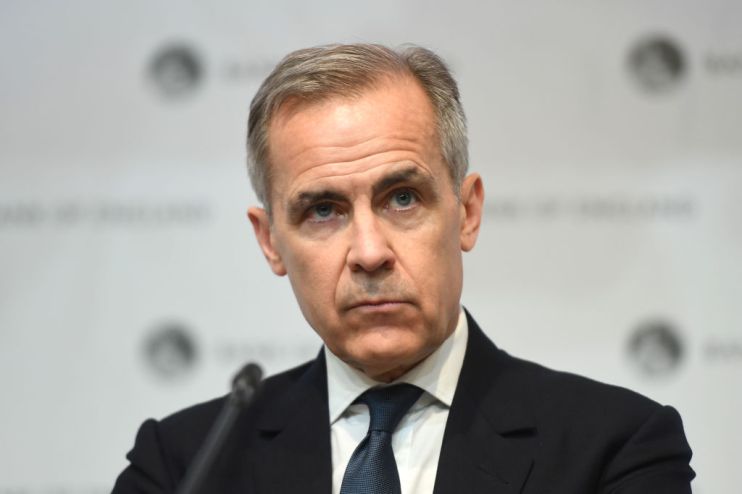Central banks must front-load rate hikes to tame inflation, Carney warns

The world’s biggest central banks need to dial up the pace of rate hikes to shake inflation out of their respective economies, the former chief of the Bank of England said today.
Canadian banker Mark Carney, 57, who led Threadneedle Street from 2013 to 2020, told Bloomberg that monetary authorities “need to start moving more rapidly” if they want to have any impact on rapid price rises.
His comments come as the US Federal Reserve is expected by Wall Street to sign off on the first 75 basis point rate rise since 1994 later today.
Fed chair Jerome Powell and co are likely to speed up the pace of policy tightening in response to last Friday’s much hotter than expected inflation clip, analysts at Goldman Sachs and Capital Economics think.
Annual US inflation climbed to 8.6 per cent last month, last week’s Labor Department figures showed, higher than economists’ expectations of a 8.3 per cent rise.
Both consumer and core inflation surprised to the upside on a monthly basis.
The Fed typically moves in 25 basis point increments. At its last meeting in May, it hoisted borrowing costs 50 basis points.
It “does make sense to front-load” rate rises, Carney said, adding it “will be necessary” for the Fed to eventually send borrowing costs to around four per cent.
Other central banks are anticipated to follow the Fed’s lead.
The City thinks the Bank of England will raise rates by at least 25 basis points tomorrow to 1.25 per cent, a 13-year high but still low by historical standards. Some are pricing in a 50 basis point lift, something the Bank has not done since it was made independent 25 years ago.
Living costs are up nine per cent over the last year in the UK, the quickest acceleration in 40 years.
Carney oversaw a period in which the Bank left rates unchanged at rock-bottom lows for several years despite the UK economy recovering from the financial crisis. He was critcised for failing to deliver on promised rate rises during his tenure.
European Central Bank (ECB) president Christine Lagarde confirmed last week eurozone rates will rise for the first time since 2011 next month and may even increase 50 basis points in September, which would bump them out of negative territory.
Inflation in the eurozone is running at 8.1 per cent, the highest rate since the creation of the euro in 1999.
The prospect of higher rates on the Continent has widened the difference between yields on government debt of different countries in the currency union, sparking concerns nations with weaker economies will be squeezed by higher debt servicing costs.
The ECB today convened an emergency meeting to discuss volatility in the European government bond market.